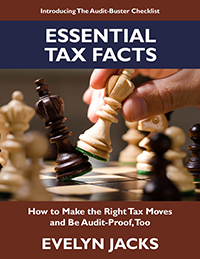Last updated: January 30 2018
Tax History: The Middle Class and Their Taxes
It’s a new tax year and 2018 marks the 101st anniversary of the first income taxes in Canada. Back in the early fall of 1917, Canada’s “War Income Tax” was introduced, and there are still many who think, wrongly, that income taxes in Canada are a temporary measure. But has much changed since 1917? The answer is yes!
To begin, a much greater percentage of Canadians are paying much more in personal income taxes. Back in 1918, the share of government revenues from personal income tax was 2.6 percent; in 2017 it was the biggest line item: 51 percent of all revenues came from personal income taxes. In 1918 the average tax burden per tax filer was $14; in 2017 it was $4,120.
The Fraser Institute1 believes this trend will not change anytime soon. In a recent study published in early 2018, it estimates that, as a result of tax changes implemented since 2016, and with changes to the CPP (Canada Pension Plan) that will begin in 2019, 98 percent of middle-income families will pay an average of $2,260 more and 92.2 percent of all families will pay $2,218 more.
Things have also gotten a lot more complex. In 1917, the tax return was six pages long and contained 23 lines; today there are over 300 lines on the return, and it is estimated that it costs $500 a year for Canadians to comply with their tax system.2
During the last major tax reform in Canada, which laid the foundation of the tax system we have today, there were many concerns about great changes. The bigger goal was to tax all sources of income in the same way, under the theory that “a buck is a buck is a buck.” However, there was much opposition.
One such critic was Mr. I.H. Asper, a Winnipeg tax lawyer, who wrote a book in 1970 entitled The Benson Iceberg: A Critical Analysis of the White Paper on Tax Reform in Canada. Like many today, he worried about Canada’s tax competitiveness. Some of his wisdoms from the book follow:
1. On high tax burdens: “The statistical evidence indicates that upper-bracket Canadians do not have capital and income in such significant amounts as to be capable of doing much for the lower-bracket group, even if all of their wealth were redistributed.”
Finance Minister Michael Wilson would echo that sentiment more than 20 years later with his quote, “Canada has an acute shortage of rich people.” Mr. Asper warned that this is an important consideration, “lest the incentives offered our upper-income group to continue earning high incomes and paying high taxes be converted into a desire to earn less and enjoy more leisure.”
2. On untested reforms: “Canada has now achieved a position whereby its citizens enjoy one of the highest standards of living in the world. It seems to be a spectacular gamble, not worth the prize even if we win, to abandon the present system in favour of something untried, unnecessary and palpably as full of mistakes and misjudgments as the White Paper has factually been shown to be.”
The present system, he continued, was far from perfect, but should be able to withstand the surgery necessary to cure any defects. And that it did, for for decades leading to our present day.
 |
3. On fundamental tax principles: A third point was also extremely interesting. Mr. Asper pointed out that our tax laws must reflect Canada’s many cultures, customs, mores and values. He felt that the White Paper failed in that respect, “because so many of its fundamental principles either conflict with basic Canadian objectives or are capable of producing negative economic results, the effect of which cannot be readily measured,” and so warned that “the Government’s scheme cannot be simply patched, repaired, amended and then enacted.”
4. On inviting the right commentary: Having said all of that, Mr. Asper recommended that the entire proposed reforms go back to the drawing-boards for another round of re-thinking, but this time involving tax-knowledgeable professions, labor and business to produce a more acceptable result!
Why is this last point so important today? Complex tax reforms for private business are taking effect on January 1, 2018, as it relates to tax on split income; with more controversial change expected in the next federal budget on the taxation of passive income in private corporations and other tax expenditures. But without informed debate by today’s concerned stakeholders and adequate implementation time, these tactics risk important – a negative - financial consequences for generations to come.
In today’s fast-paced world, financial literacy - the knowledge, skills and confidence to make responsible financial decisions - matters. Governments can help Canadians with this important life skill by ensuring the impact of proposed tax laws are well understood and not rushed.
Evelyn Jacks is President of Knowledge Bureau and author of the New Essential Tax Facts: How to Make the Right Tax Moves and Be Audit-Proof, Too, available in February. Pre-orders accepted now. Follow Evelyn on twitter @evelynjacks.
©2018 Knowledge Bureau Inc. All Rights Reserved.





